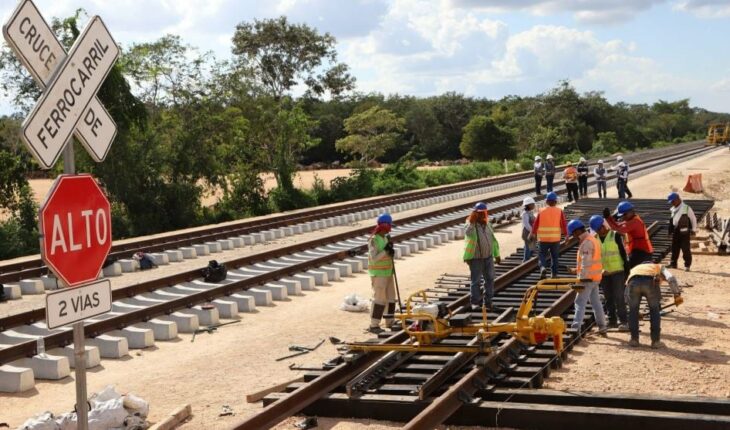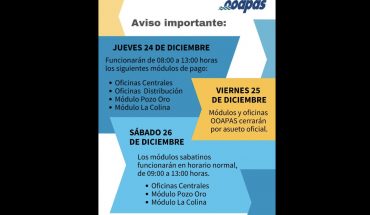Environmentalists and activists denounced that the transfer of material for the construction of the Mayan Train will impact mobility, the economy and the environment in the region of Puerto Morelos, Quintana Roo, starting in January 2023.
Organizations warn that the federal government intends to use the dock of the Integral Administration (API) in Puerto Morelos for the disembarkation of the rock that will be used on the train tracks, without considering the impacts for the inhabitants of the region.
According to the complainants, the rock will be sent by boat from Cuba, but it will not be able to dock in Puerto Morelos due to lack of depth, so the material must reach land by barge to the dock.
“Given that the Fiscal Pier of Puerto Morelos does not have the draft or the necessary characteristics to disembark the rock, the maneuvers would be very complicated and expensive, in addition to putting at risk the coral reef, declared a National Park in 1998, and an important source of the economy of Puerto Morelos,” warned organizations such as Voces Unidas de Puerto Morelos and Puerto Morelos Sustentable.
Read more | Activists insist AMLO to change the route of the Mayan Train so as not to affect natural areas
For Aracely Domínguez, a member of Grupo Gema del Mayab, one of the complainant organizations, the land transfer of at least 30 kilometers of stone to crush and then distribute it will be one of the main impacts.
“There will be 300 trucks a day from the fiscal dock, until kilometer 6 of the Cenotes Route. Everyone has to go through a bridge that is a single street that the inhabitants travel, it will be an affectation to the citizens as well, “he questioned.
The organizations point out that these trucks must leave and return through the center of Puerto Morelos every day, for at least a year, with a route that currently has only one lane.
Dominguez maintains that the road impact will affect the inhabitants of Puerto Morelos, Leona Vicario, Cancun and Playa Del Carmen.
In addition, they warn that this transfer will affect ecosystems and protected species, because they would have to expand the current roads, since they consider that they do not have the necessary characteristics to support the load of 300 trucks per day.
This expansion, they argue, would violate several environmental laws for the protection of wetlands and species.
“The wetland of Puerto Morelos, in addition to being protected by environmental laws (NOM-022-SEMARNAT 2003, NOM-059-SEMARNAT 2010, article 60 ter of the General Wildlife Law, article 420 bis of the Federal Criminal Code), is a Ramsar site and is located in the area of influence of two of the most important protected areas in the north of the state of Quintana Roo, the Arrecife National Park of Puerto Morelos and the Mexican Caribbean Biosphere Reserve,” they said in a statement.
“Considering the works that are being carried out on the federal highway between Puerto Morelos and Cancun and the circulation problems they have caused, we believe that vehicular traffic from Cancun to Playa del Carmen will suffer a tremendous impact,” said the environmental organizations, who suggest that the unloading of the material be carried out in Puerto Progreso, considering that it has better infrastructure and connectivity for the transfer of the material.
On the actions to be followed by the organizations, Aracely Domínguez affirms that the only intention of the collectives is that the citizens of the region are aware of the impacts.
What we do at Animal Político requires professional journalists, teamwork, dialogue with readers and something very important: independence. You can help us keep going. Be part of the team.
Subscribe to Animal Político, receive benefits and support free journalism#YoSoyAnimal





